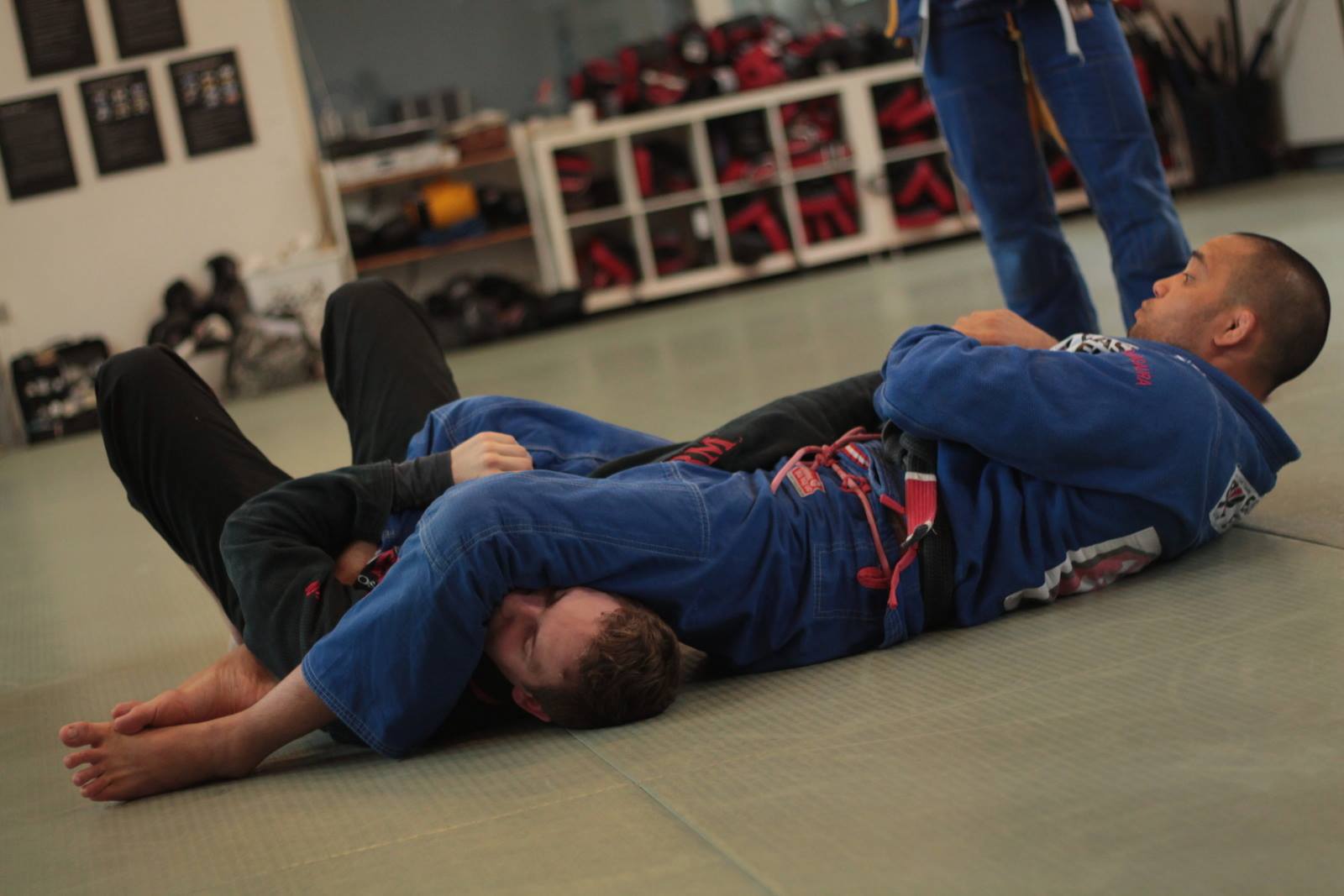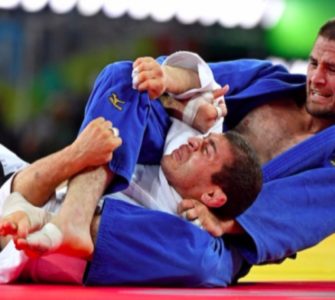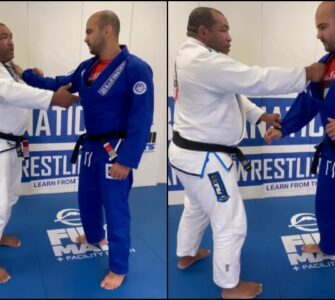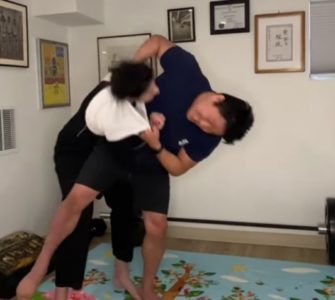Guest post by Neil Adams MBE, an English judoka who won numerous Olympic and World Championship medals in judo representing Great Britain. Adams was the first British male to win a World title, and the first British male to simultaneously hold a world title and a European title. Other achievements include a gold medal at the 1981 World Judo Championships in Maastricht, the Netherlands, plus silver medals in the 1980 and 1984 Summer Olympic Games and the 1983 Judo World Championships. Adams was also five-time European Champion. On 20 September 2008 he was promoted to 8th Dan at the age of 49. He is famous for his ground game (ne waza) and his arm lock (that won him the world championship).
Adams has released a new series of Judo instructional entitled ‘Essential Judo‘ which is a revolutionary & highly detailed way of teaching the art of Judo.
Over my career as both a Judo Player which saw me become champion of the world and as a coach which lead to training many elite Judo player across the globe it would be fair to say I have learned the importance of a sound technical base and the vital role it has in progression of talent .

We all want results fast in life. Everyone wants to lose weight as fast as they can, we all want to get home as fast as we can after work and yes we all want to improve our Judo as fast as we can!
Yet this doesn’t happen if we just train more, or train for longer. We need to ‘Train Smarter’ if we want to make our Judo more effective within the shortest amount of time.
This is what we can call ‘optimisation of our training’. In true Judo spirit we are looking to gain the maximum results from the minimum expenditure of time on the mat. In essence many of us don’t have time to be on the mat everyday so we need to make every second on the Tatami effective.
One of the ways to achieve this so for you to create a 1 Hour progressive Judo Skills Programme. Sounds complicated? Trust me it isn’t once you start the process off.
How to create a 1hr progressive Judo skills programme
First of all you need to commit this programme to paper or if you prefer to use a digital method on your computer, tablet or mobile phone. I will write more about training diaries and plans in the future.
Your progressive Skills Programme needs to include the following:
· proper warmup,
· Breakdown of specific technique (whole –part- whole)
· Skills training (Tachi waza & ne waza uchi komi and nage-komi),
· transition from the tachi waza skill into the newaza skill,
· situational randori and
· cool down with flexibility training.
Under each section you need break this down and write detailed information about the activities you are going to do.
Proper Warm Up
Do you know how to warm up properly? Many people don’t however to reduce injures and to keep you on the mat each week you need a proper warm up. Whilst the scope of this post is not about how to warm up (we will discuss this in detail) I have included my vodcast below on the importance of proper warm up to assist you. Of note a proper warm up before an event is imperative to improve your performance. Many warm ups can be wasted, and not have Judo specific in there content.
In your programme look at the ways you warm up, and make notes to include a variety of methods incorporating Judo movement, balance, kuzushi and adaptability.
Skills- Tachiwaza and Newaza Uchi Komi
Depending on what your favourite techniques are you will of course choose to work on what suits you or the goals of your class. However use this part of your training to work on specific techniques. I use a whole-part-whole method of teaching which you may have seen in Judo Excellence.
Don’t worry if you feel that you don’t know enough about certain techniques that is what Judo Excellence is for, a total guide to take the guess work out of training and coaching. In your training programme you need can use drills and games if required so make a note in your plan of your favourite Judo drills.
Transition from the tachi waza skill into the newaza skill
It amazes me how few people actually work on their transitions from Tachi waza into Newaza. This is a fantastic way of making huge improvements to your Judo in a short amount of time and in randori and competition it will help you to focus on specific attacking strategies.
Situational randori
Randori is great, however you can get more from it by creating what they I call situational Randori.
In this concept you need a training partner to recreate situations you may find yourself in such as a player that grips with a high overhand, or an extreme lefty. Get your training partner to help you and vice versa. Boxers have been using this same concept for years when they bring in certain types of sparring partner when they know they are going to face a type of opponent. Rarely in Judo do we get such advanced notice so you are going to have to be helpful to your training partners. Use your imagination and watch competition footage online to get ideas. Working within the boundaries of the competition rules and regulations helps prepare us for the plays of the game. Rules dictate development and need to be part of the development programme.
Cool Down with Flexibility Training
Recovery is so much a part of the process of training that the cool down and stretching after each session is an integral part of the process. Stretching and active warm down after each session will help to prevent injury and to prepare the body and mind for the next training session..
Your goal should be to plan each session in advance to get the most of it, after a short time you will have a collection of session plans that can all build up week after week. There is no limitation to the potential of planning as you can alter your plans depending on events, class sizes and ability/ experience of the players.
The goal here though is to plan in advance to get the most from your time on the mat. Remember to make your Judo more effective you need to train smarter and not just harder. They say that for every impromptu performance there are 3 hours of preparation. Preparation is the key.

















